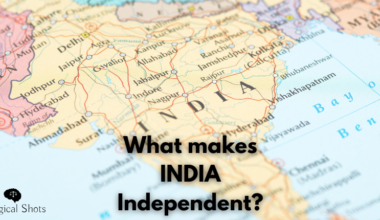India, a land known for its diverse ecosystems and sacred relationships with nature, is now at a dangerous ecological tipping point. From vanishing forests in Chhattisgarh to toxic air in Delhi and dying rivers across states, the scale of environmental damage is no longer gradual – it is deliberate, destructive, and often irreversible. This is what the world is beginning to call ecocide: the systematic and widespread destruction of ecosystems. But in India, we still lack a word and a law that criminalizes such acts. Let’s see what it means and why we need strict Ecocide Law in India.
What does Ecocide Mean?
Ecocide refers to the mass destruction of ecosystems, caused by human activity, which results in severe, widespread, or long-term environmental harm. It includes actions like large-scale deforestation, toxic dumping, industrial pollution, and environmental damage during warfare.
Why we need Ecocide Law in India?
India is facing an Ecological emergency. From the toxic air in our cities to dying river, shrinking forests, rising temperatures and climate-induced disasters, the damage is no longer subtle – its visible, destructive and in many cases, irreversible. Yet, despite the scale of harm, India does not legally recognize “Ecocide” as a crime.
India ranks among the top nations experiencing extreme environmental degradation. There is massive deforestation for mining, highways and infrastructure and rivers like the Yamuna and Ganga are ecologically dead in many regions. There is an increase in climate disasters: floods, droughts and heatwaves and landslides, pollutions. Environmental issues are a cause of lots of diseases, health issues and further impacts long term livelihood in our country.
Some have cited that the economic development has led to the current scenario. Others believe that Ecocide Law in India may or may not change anything. But for that, understanding where it comes from, the root cause of ecocide, is important.
The key sources of pollution in India include:
- Rapid burning of fuelwood and biomass
- Lack of organized garbage and sewage treatment
- Air pollution from livestock
- Deforestation
- Poor flood control and drainage systems
- Dumping of industrial and consumer waste into rivers
- Use of land near rivers for burial and cremation
- Pollution from outdated public transport and private vechiles.
These issues, combined with weak enforcement and urban pressure, severely impact India’s air, water and soil quality.
Current laws are weak or poorly enforced
While India has the Environment (Protection) Act, 1986, the Air and Water Acts in place, and even the National Green Tribunal holding its ground, they are mostly civil or regulatory in nature. There’s no criminal liability for large scale destruction of ecosystems. The Penalties are often fines – which corporations can easily absorb. Further delays in enforcement and loopholes weaken the deterrent effect.
Marginalized Communities Are the Worst Affected
Tribal groups, forest dwellers, and rural populations often bear the brunt of ecocidal acts. Displacement due to mining or dam projects and Health issues from industrial pollution, Loss of livelihoods tied to forests, rivers, and agriculture are some major examples. Fisher folk and farmers face loss of income due to degraded resources.
India is a Global Player – With Global Responsibility
As one of the largest economies and a party to the Paris Agreement, India has a duty to show leadership in sustainability. Criminalizing ecocide would:
- Set a precedent Globally.
- Show that development doesn’t have to come at the cost of nature.
- Pressurise corporations to follow stricter environmental norms.
Awareness is the First Step Towards Legal Reforms
We can’t demand ecocide law in India if we don’t even talk about it. This conversation is the first step towards: Holding polluters accountable, Empowering the communities to seek justice, and Changing how we define development and progress.
Supreme court’s view on Ecocide
The Supreme Court’s views on ecocide law in India were reflected in a recent judgment in Vellore District Environment Monitoring Committee v. District Collector (2025 INSC 131). On January 30th 2025, a bench led by Justice J.B. Pardiwala and R. Mahadevan ruled that the discharge of untreated or partially treated effluents by tanneries into the river in Vellore district, Tamil Nadu has caused “Irreversible damage to water bodies, groundwater and agricultural land”, devastating local communities and ecosystems. Further, this ruling reaffirms principles of law like the Polluter pays principle, the precautionary principle, government liability, public trust and right to a healthy environment. The Court emphasized that the polluters should be held absolutely and continuously liable until ecological damage is fully reversed, and that the government oversight failures invoke “Government Pays” obligations.
Garbage behind the Taj Mahal: A National shame we can’t ignore
Recently, a tourist visiting the majestic Taj Mahal- a monument of love and pride for millions – shared some troubling observations through social media. Just behind the world renowned heritage site, along the banks of the Yamuna River, heaps of garbage was piled up, left to rot in the open. The stench the pollution and the apathy were louder than the beauty of the marble dome itself.
Also read about MC Mehta and explore his connection with pollution near Taj Mahal
This isn’t just a local issue. It reflects a much deeper problem – a national crisis of civic issues.
Is this the India we want the world to see?
Yes, it is shameful — not just for the authorities but for all of us. Because this isn’t an isolated incident. Across India, we see the same story on repeat:
- People throwing waste on roads, footpaths, railway tracks, rivers, and even temples,
- Spitting on public walls and roads as if it were normal,
- Urinating openly, even near public toilets,
- Damaging public infrastructure like benches, streetlights, and government buildings,
- Treating public spaces as if they are no one’s responsibility.
We call ourselves a culturally rich, spiritual, and civil society. Yet our actions speak otherwise.
Our Rivers, Roads, and Monuments Deserve Better
The Yamuna, flowing behind the Taj Mahal, is not just a river — it’s a part of our historical and ecological identity. And yet, it’s being treated as a dumping ground. The streets of our cities, which should be clean and welcoming, are littered with garbage and stained with spit. The monuments we take pride in, are surrounded by waste and pollution. While we dwell upon these observations, there is a bigger question to ask ourselves!
Where Is Our Civic Sense?
Cleanliness is not just the government’s job — it’s a shared duty.
Civic sense means caring for the community, respecting public property, and understanding that our country is only as clean and dignified as we keep it.
Until we learn to:
- Use dustbins instead of roadsides
- Respect heritage instead of defacing it
- Use toilets instead of walls
- Maintain infrastructure instead of vandalizing it
We cannot call ourselves a truly developed nation — no matter how many buildings we construct or highways we build.
“We are not judged by how we treat our private homes, but by how we treat our public spaces.” If we can keep our homes clean, why can’t we do the same for our country? India doesn’t just need economic growth. It needs a cultural reset in responsibility and respect — starting with every citizen.








